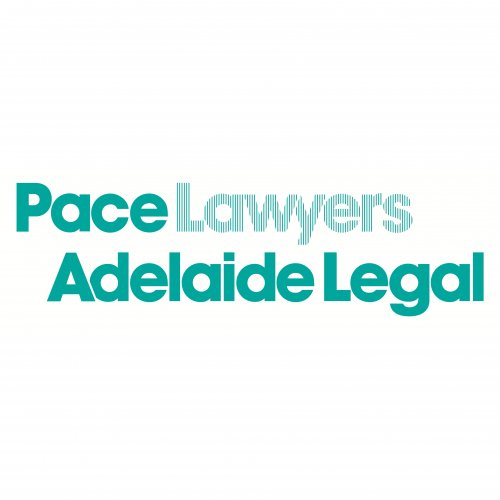Best ADR Mediation & Arbitration Lawyers in Adelaide
Share your needs with us, get contacted by law firms.
Free. Takes 2 min.
List of the best lawyers in Adelaide, Australia
About ADR Mediation & Arbitration Law in Adelaide, Australia
Alternative Dispute Resolution (ADR) is a crucial aspect of the legal landscape in Adelaide, Australia. ADR encompasses various methods such as mediation and arbitration, which provide parties with alternatives to traditional court litigation. Mediation involves a neutral third party assisting disputing parties in reaching a mutually agreeable solution. In contrast, arbitration is a more formal process where an arbitrator makes a binding decision after considering both sides. These methods offer benefits such as reduced costs, shorter timelines, and the ability to find creative solutions tailored to the parties involved.
Why You May Need a Lawyer
Engaging a lawyer for ADR mediation and arbitration can be beneficial in several situations. A lawyer can provide invaluable guidance during contract disputes, employment disagreements, family matters, and consumer complaints. When a resolution is complex or there's a significant power imbalance between the parties, having legal representation ensures that your rights and interests are adequately protected. Lawyers are also equipped to help draft enforceable agreements and navigate legal nuances that may arise during ADR processes.
Local Laws Overview
The legal framework for ADR in Adelaide is governed by a combination of federal and state laws. The Commercial Arbitration Act 2011 (SA) aligns South Australia's arbitration laws with international best practices. The Mediation Act 2014 (SA) provides a legal foundation for mediation procedures, establishing standards for mediators and confidentiality. Additionally, Australia's national framework, the Australian Consumer Law, impacts ADR by influencing business practices and dispute resolution related to consumer issues. These laws ensure fair, efficient, and equitable dispute resolution processes are available to individuals and businesses alike.
Frequently Asked Questions
What is the difference between mediation and arbitration?
Mediation is a collaborative process where a neutral third party assists in reaching a voluntary agreement, while arbitration is a more formal process where an arbitrator makes a binding decision.
Is the decision made in arbitration legally binding?
Yes, in arbitration, the arbitrator's decision is usually final and legally binding, similar to a court judgment.
Can I have legal representation during mediation?
Yes, parties can choose to have legal representation during mediation to ensure their interests are protected and to facilitate a fair negotiation process.
How long does the ADR process typically take?
The duration varies depending on the complexity of the case, but ADR processes like mediation and arbitration are generally faster than traditional court proceedings.
What are the costs involved in ADR processes?
The cost of ADR can vary widely based on factors such as the complexity of the dispute and the professionals involved. Generally, it is less expensive than litigation.
Can ADR be used for all types of disputes?
While ADR is suitable for many types of disputes, including commercial, family, and employment conflicts, some disputes may require court intervention, such as criminal matters.
What happens if mediation does not resolve the dispute?
If mediation doesn't result in a resolution, parties can still proceed to arbitration or court to resolve their dispute.
Are ADR processes confidential?
Yes, confidentiality is a hallmark of ADR processes, ensuring that discussions within mediation and arbitration remain private unless agreed otherwise.
Where can I find a qualified mediator or arbitrator in Adelaide?
Qualified professionals can be found through professional associations, legal directories, or by consulting with law firms specializing in ADR.
Do I have to accept the mediator's recommendations?
No, mediation is a voluntary process, and parties are not required to accept the mediator's suggestions or reach an agreement.
Additional Resources
For individuals seeking assistance or further information on ADR, consider contacting the Law Society of South Australia, the Australian Dispute Resolution Association, or the South Australian Civil and Administrative Tribunal (SACAT) for guidance and resources.
Next Steps
If you need legal assistance in ADR mediation and arbitration, consider reaching out to a law firm specializing in ADR. Schedule a consultation to discuss your situation, understand your options, and determine the best course of action. Collect all relevant documentation and clearly outline your goals and concerns to ensure the lawyer can provide tailored advice and representation specific to your needs.
Lawzana helps you find the best lawyers and law firms in Adelaide through a curated and pre-screened list of qualified legal professionals. Our platform offers rankings and detailed profiles of attorneys and law firms, allowing you to compare based on practice areas, including ADR Mediation & Arbitration , experience, and client feedback.
Each profile includes a description of the firm's areas of practice, client reviews, team members and partners, year of establishment, spoken languages, office locations, contact information, social media presence, and any published articles or resources. Most firms on our platform speak English and are experienced in both local and international legal matters.
Get a quote from top-rated law firms in Adelaide, Australia — quickly, securely, and without unnecessary hassle.
Disclaimer:
The information provided on this page is for general informational purposes only and does not constitute legal advice. While we strive to ensure the accuracy and relevance of the content, legal information may change over time, and interpretations of the law can vary. You should always consult with a qualified legal professional for advice specific to your situation.
We disclaim all liability for actions taken or not taken based on the content of this page. If you believe any information is incorrect or outdated, please contact us, and we will review and update it where appropriate.















